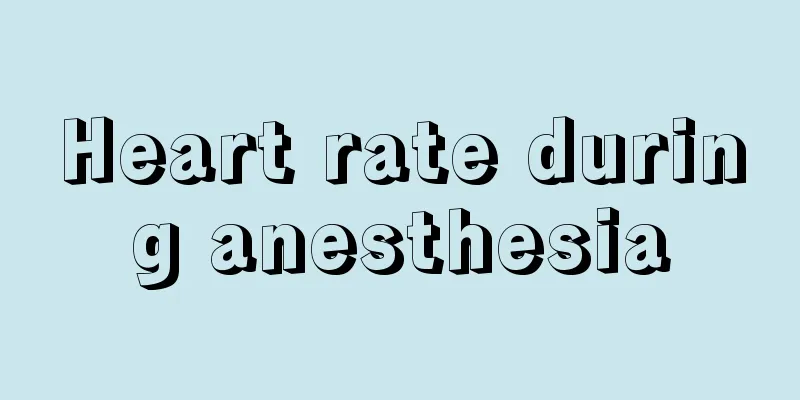Heart rate during anesthesia

|
Everyone's heart rate is different, so it is necessary for everyone to understand the issue of heart rate, so as to ensure the maintenance of our heart. Some people will have a low heart rate during anesthesia. In this case, we must pay attention to choosing the appropriate method of treatment and cooperate with some coping measures. Anesthesia for Arrhythmias The incidence of arrhythmias during perioperative cardiac and non-cardiac surgery is high, but the incidence of adverse consequences is not high. Anesthesiologists should be able to identify changes in the electrocardiogram, such as heart rate, heart rhythm, number of P waves in the QRS wave, and QRS wave shape, while explaining the causes of arrhythmias, understanding their severity and correct medication treatment, in order to reduce perioperative complications and mortality. Arrhythmia refers to abnormalities in the frequency, rhythm, origin, conduction velocity or activation order of cardiac impulses. Sinus arrhythmias include sinus tachycardia, sinus bradycardia, sinus arrhythmia, and sinus arrest. Ectopic rhythms include escape rhythm, premature beats, paroxysmal tachycardia, atrial flutter, atrial fibrillation, ventricular flutter, and ventricular fibrillation. Arrhythmias caused by abnormal impulse transmission include sinoatrial block, intra-atrial block, atrioventricular block, left or right bundle branch block, intraventricular block, and predicted syndrome. Factors that induce and aggravate arrhythmias during the perioperative period: 1. Stress response and the role of catecholamines. Anesthesia and surgical stimulation can cause systemic stress, which is manifested as increased release of catecholamines from sympathetic nerves and reduced clearance, leading to increased catecholamine concentrations in the blood, thereby increasing the autonomy, irritability and conductivity of the heart rhythm, and inducing and aggravating arrhythmias. Catecholamines used during anesthesia and surgery can also induce and aggravate arrhythmias. 2 Hemodynamic changes: Drastic changes in hemodynamics during anesthesia and surgery are an important cause of arrhythmias. A sharp increase in blood pressure can cause bradycardia due to the pressor nerve reflex; prolonged hypotension can cause myocardial hypoxia, induce an increase in catecholamines, and produce metabolic acidosis, leading to various arrhythmias. 3.CO2 accumulation and hypoxemia. Improper anesthesia often leads to CO2 accumulation and hypoxemia. Whether they occur simultaneously or alone, they can directly cause damage to the myocardium and induce arrhythmias. They can also cause arrhythmias indirectly, such as by disrupting the acid-base balance of the internal environment, increasing the level of catecholamines in the body, disturbing the electrolyte balance, or by stimulating the autonomic nervous system. |
Recommend
What factors may induce liver cancer? To prevent liver cancer, you should avoid eating four things
More than 50% of liver cancer is caused by hepati...
How to treat blood blister sting
If you do not pay attention to your diet and life...
What to do if urine is turbid
Turbid urine is caused by the presence of a lot o...
I feel pain in my lower abdomen, what's going on?
In our daily lives, we often feel various discomf...
Can scraping and cupping be performed at the same time
Scraping and cupping are both treatment methods t...
Is there any way to increase height
We Chinese are generally not very tall, but many ...
What causes wound scars to turn red?
I believe everyone has noticed that if there is a...
What are the causes of gastric cancer? There are four categories
There are obvious regional differences in the inc...
What are the symptoms of liver failure
Liver failure is particularly harmful to the pati...
How to use a tampon
When women have their menstrual period, we usuall...
The first sputum in the morning is brown
When there are toxins in our body, many abnormal ...
How long can you live if lung cancer recurs
How long can you live if lung cancer recurs? 1. I...
Does makeup remover damage the skin?
Nowadays, many girls use makeup to change their a...
Diet for esophageal cancer, dietary therapy to control the disease
Esophageal cancer is a very common malignant tumo...
4 common causes of breast cancer. Eating more of these 3 foods can prevent breast cancer
Gynecological diseases have been the nemesis of f...









